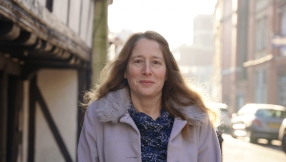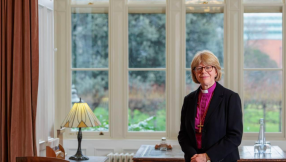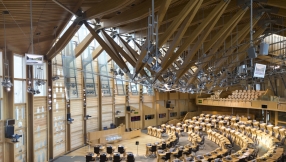Pope Benedict & WCC's Head First Meeting Signals New Phase in Christian Unity
The first ever meeting between Pope Benedict XVI and the General Secretary of the World Council of Churches (WCC) Rev Dr Samuel Kobia since both took up their current positions was held on Thursday 16th June, and was witnessed by a small private audience.
The two organisations have both shown their pursuit in unifying all Christians, which is seen as an encouraging step in the ecumenical movement worldwide.
Pope Benedict XVI was quoted by the Associated Press: "The commitment of the Catholic Church to the search for Christian unity is irreversible."
In his remarks, Pope Benedict XVI also assured Kobia that the church he heads is "eager to continue cooperation" with the WCC, and expressed hope that the visit had been "fruitful, strengthening the bonds of understanding and friendship between us".
The WCC is the world’s largest ecumenical fellowship of more than 300 churches from nearly all Christian traditions, including Protestant and the Orthodox. The Roman Catholic Church is not a member of the WCC but works cooperatively with it in several areas, and is a full member of two of the Council's commissions: Faith and Order, and World Mission and Evangelism.
Since Pope Benedict XVI was elected as the new pope after the late John Paul II, he has repeatedly vowed that uniting all Christians and healing the 1,000-year-old rift with the Orthodox Church a "primary" task of his papacy.
Rev Dr Samuel Kobia, a Methodist pastor and general secretary of the Geneva-based council, said he was encouraged by the Pope’s pledges.
Kobia told the audience yesterday his visit took place in the perspective of a long history of common commitment to the one ecumenical movement. The collaboration between the Roman Catholic Church and the WCC has been maintained through a Joint Working Group formed on 1965, which will celebrate its 40th anniversary in November in Geneva.
Kobia suggested to the Pope that dialogue about the understanding of the church (ecclesiology in theological terminology) is currently important among churches since it affects, among other things, "their ability or inability to recognise one another as churches".
Therefore, Kobia pledged the WCC "would like to encourage dialogue on these fundamental questions in our relationships with all our ecumenical partners".
Particularly, a document - "Dominus Iesus" - from the Vatican's Congregation for the Doctrine of the Faith published in 2000, has been considered as a major roadblock between the Roman Catholic Church and all the other Protestant Churches.
The document, written by Benedict when he was Cardinal Joseph Ratzinger, said non-Catholic or Orthodox "ecclesiastical communities" were "not churches in the proper sense."
In the light of the Pope’s active approach to reconcile with the Orthodox Church, Kobia raised the question in his address to the WCC’s Orthodox member churches, "Is there space for other churches in Orthodox ecclesiology? How would this space and its limits be described?"
Similarly, Kobia also asked the churches within the tradition of the Reformation, "How does your church understand, maintain and express your belonging to the One, Holy, Catholic and Apostolic Church?"
According to the Associated Press, Kobia told the news conference after his meeting with the pope that he wanted to make Benedict's statements since he became pontiff, "the point of departure" for ecumenical discussions. He made no mention of the provoking document "Dominus Iesus".
"There are many Protestant churches that are members of the WCC and are concerned that they are defined as 'ecclesiastic communities' and not full churches," Kobia told the Associated Press. "I don't want to revive all the pain that many churches felt after Dominus Iesus. If we could say we have moved beyond it, it would be helpful."
Yesterday’s meeting with the Pope was the climax of Kobia’s 13th-16th June visit to the Vatican which also included meetings with the heads of four pontifical councils, a courtesy call to the Vatican state secretary, and visits to other Roman Catholic bodies and sites.
Kobia was accompanied on the visit to Rome by WCC president Bishop Eberhardt Renz from the Evangelical Church in Germany, and central committee member Archbishop Makarios of Kenya and Irinoupolis from the Greek Orthodox Patriarchate of Alexandria and All Africa (Egypt).













